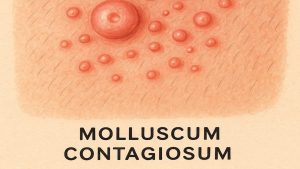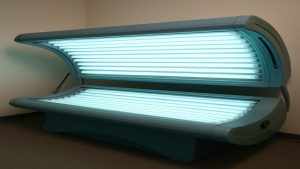- AI identifies acne, pigmentation, and other skin issues
- Online consultations give expert skincare guidance from home
- AI formulations with tretinoin target specific skin concerns
- Personalised regimens improve results and reduce care costs
- Future smart devices promise real-time skincare support
Artificial intelligence (AI) is reshaping skincare by delivering precise, personalised solutions tailored to individual skin needs. Through AI skin analysis and innovative technology, dermatologists now have advanced methods to diagnose and treat skin conditions effectively.
In this article, we explore how the integration of AI in healthcare enhances accessibility and confidence, helping individuals manage skin health with greater ease.

AI-Powered Skin Analysis: Understanding Your Skin
AI skin analysis allows users to assess their skin remotely. By processing images with advanced algorithms, AI systems detect concerns such as acne, fine lines, or hyperpigmentation, recommending suitable treatments.
A study in Nature Medicine reported AI-based dermatology assessments achieved diagnostic accuracy comparable to dermatologists, reaching 66% accuracy versus 63% for experts [1]. These systems recognise subtle patterns, such as early pigmentation changes, often missed by the human eye, offering a foundation for informed skincare decisions.
As AI databases expand, diagnostic precision continues improving, helping clinicians align treatments with unique skin profiles for better outcomes.
Online Skin Consultations: Accessible Expertise
AI-powered online consultations enable professional skincare guidance from home. Platforms analyse skin images using extensive datasets, generating targeted recommendations. A PubMed review found that AI-supported teledermatology significantly improved patient satisfaction due to accessibility and shorter wait times [2].
This accessibility benefits busy individuals or those in remote regions, ensuring timely management for concerns such as acne or rosacea. AI for healthcare diagnosis supports dermatologists in prioritising cases efficiently, optimising both patient care and system resources.
Skincare Product Innovation: Precision Formulations
AI technology contributes to targeted skincare product development, refining formulations for conditions like acne, ageing skin, or hyperpigmentation. By analysing clinical data and user feedback, AI aids ingredient selection and dosage optimisation.
Tretinoin, a retinoid, boosts skin cell turnover, reducing acne lesions when used consistently [3]. Azelaic acid reduces inflammation and hyperpigmentation, improving skin tone [4].
Monderma uses AI-supported formulation design to develop prescription skincare that is effective, safe, and evidence-based.
Benefits Of AI In Skincare: Efficiency & Effectiveness
AI integration in skincare brings several advantages, improving outcomes and convenience.

Personalised Skincare
AI skin analysis evaluates thousands of variables to create tailored skincare plans. NICE guidelines on acne management note that personalised topical treatments, such as those with adapalene, improve adherence and efficacy [5].
Enhanced Diagnosis
AI supports early detection of skin diseases, enhancing accuracy. A study found AI tools identify melanoma with accuracy comparable to dermatologists [6]. These insights assist early intervention for pigmentation or other chronic issues.
Time & Cost Efficiency
Teledermatology with AI reduces the need for frequent in-person visits, saving time and costs. Studies show significant reductions in consultation expenses compared with traditional care [7].
Monderma’s digital-first model streamlines this approach, offering affordable, clinically guided skincare prescriptions.
| Benefit | Description |
|---|---|
| Personalised Skincare | AI creates regimens tailored to individual skin needs. |
| Enhanced Diagnosis | AI detects early skin conditions with precision. |
| Time & Cost Efficiency | Reduces visits, saving time and money. |
Table 1: Summary of AI benefits in personalised skincare
Monderma: Personalised Prescription Skincare
Monderma provides prescription skincare for acne, rosacea, hyperpigmentation, and ageing skin, developed by GPhC-registered professionals. Formulations may include active ingredients such as adapalene, azelaic acid, and tretinoin, each tailored to the user’s skin type and goals.
Through AI-informed assessment and clinical review, Monderma ensures precision and safety. Individuals can begin their journey with a free online consultation.
Future Innovations: The Next Frontier
Emerging AI technology continues to expand skincare possibilities, with upcoming innovations focusing on real-time insights and predictive analytics.
Smart Skincare Devices
Next-generation skincare devices will use AI to analyse skin in real time and dispense products precisely. This innovation ensures accurate dosing and consistent application, enhancing product performance and compliance.
Virtual Skincare Assistants
AI-driven virtual assistants will soon guide users through skincare routines, offering real-time advice and adjustments. These assistants support better self-management and education for users at home.
Health Data Integration
Future systems will merge skincare data with broader health metrics such as diet, stress, or environment. Integrating AI in healthcare diagnostics across disciplines, including dermatology, mirrors its success in other medical fields like radiology [8].
Challenges & Considerations: Responsible Implementation
Although AI in healthcare offers major advantages, it requires careful ethical and technical oversight.
Data Privacy
Patient confidentiality must remain central. The NHS mandates encryption and transparent data use to sustain trust in digital health platforms [9]. Monderma follows these principles to ensure data security during online consultations.
Accuracy & Bias
AI systems must rely on diverse datasets to avoid biased outputs. A JAMA study stressed the need for inclusivity in algorithm training to ensure fairness across all skin tones [10].
Human Expertise
AI complements, rather than replaces, clinical judgment. According to NICE rosacea management guidance, dermatologist input remains essential for complex or evolving conditions [11].
| Challenge | Description |
|---|---|
| Data Privacy | Protecting patient data maintains trust in AI systems. |
| Accuracy & Bias | Diverse datasets prevent biased skincare recommendations. |
| Human Expertise | AI supports but cannot replace dermatologists. |
Table 2: Challenges and considerations in integrating AI with clinical skincare
Embracing AI For Enhanced Skin Health
AI in healthcare represents a major shift toward precision and accessibility in skincare. By combining AI skin analysis with expert-prescribed treatments, individuals can achieve healthier, clearer skin with confidence.
Platforms like Monderma exemplify this integration, merging technology with human expertise for optimal results. Complete a free consultation to discover your personalised skincare solution and share this article to help others understand how AI is transforming skincare.
Content is for informational purposes only. Monderma treatments are prescribed following consultation. Results and timeframes can vary. Use as directed by your prescriber.
Bibliography
- Liu Y, Jain A, Eng C, et al. A Deep Learning System for Differential Diagnosis of Skin Diseases. Nature Medicine, 26(6), 900–908.
- Lee JJ, English JC. Teledermatology: A Review and Update. Am J Clin Dermatol, 19(2), 253–260.
- StatPearls. Tretinoin. StatPearls Publishing, 2023.
- StatPearls. Acne Vulgaris. StatPearls Publishing, 2023.
- NICE. Acne Vulgaris: Management. NG198.
- Esteva A, Kuprel B, Novoa RA, et al. Dermatologist-Level Classification of Skin Cancer with Deep Neural Networks. Nature, 542(7639), 115–118.
- Snoswell CL, Taylor ML, Caffery LJ. The Cost-Effectiveness of Teledermatology. J Telemed Telecare, 26(7–8), 423–431.
- Topol EJ. High-Performance Medicine: The Convergence of Human & Artificial Intelligence. Nature Medicine, 25(1), 44–56.
- NHS Digital. Data Security & Protection Toolkit. NHS, 2023.
- Adamson AS, Smith A. Machine Learning & Health Care Disparities in Dermatology. JAMA Dermatology, 154(11), 1247–1249.
- NICE Clinical Knowledge Summaries. Rosacea | Management (NICE CKS).
Find your perfect skincare formula
Takes less than 2 minutes – see what your skin needs
Get Custom Formula













